‘There was Emmeline Pankhurst, there was my nana and there was the Queen’
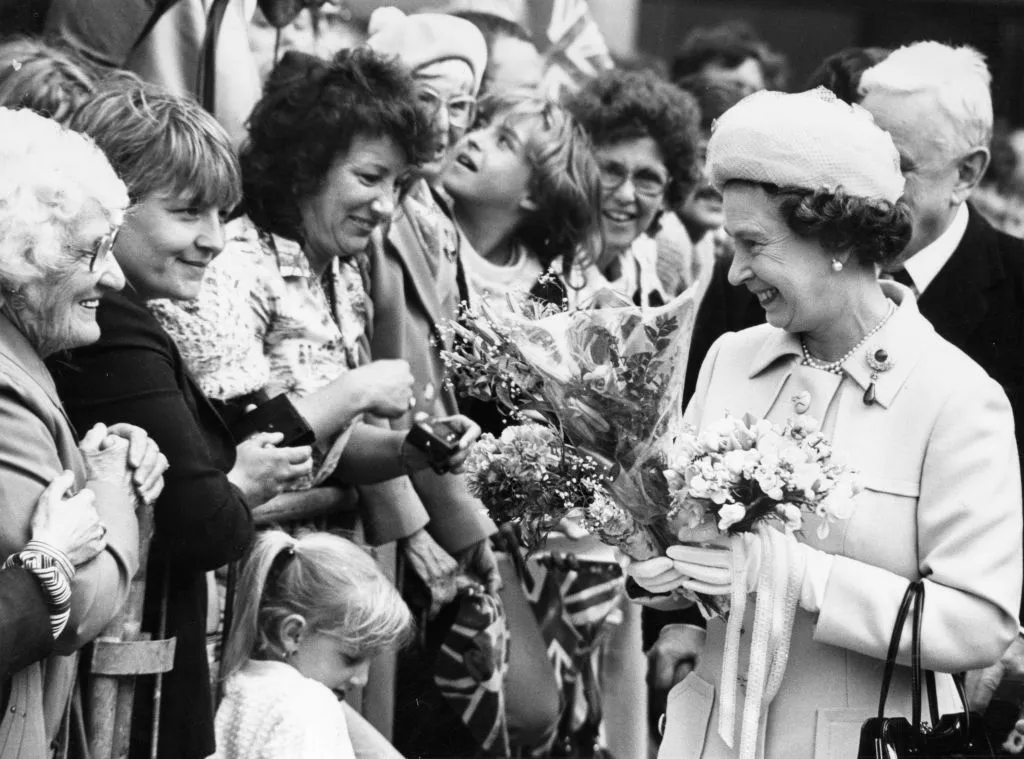
Merseyside remembers Queen Elizabeth II
At The Lady Chapel of Liverpool Anglican Cathedral, Laura approaches the altar, dressed entirely in black. She sits down to write for a few minutes, and then walks away, wiping a tear from her eye.
“I’m so sorry, I know it’s ridiculous,” she says. “She was a woman I always looked up to as a little girl. There was Emmeline Pankhurst, there was my nana and there was the Queen.”
Praying was revelatory for Laura: she describes herself as usually not an emotional person, but the act of praying for solace from God and to thank the Queen has made her reflect on those we have lost, and those we take for granted. The cathedral has become a focal point for tributes and goodbyes to the Queen, and I came here to learn something about why people are grieving, in a city where you might not expect them to be.
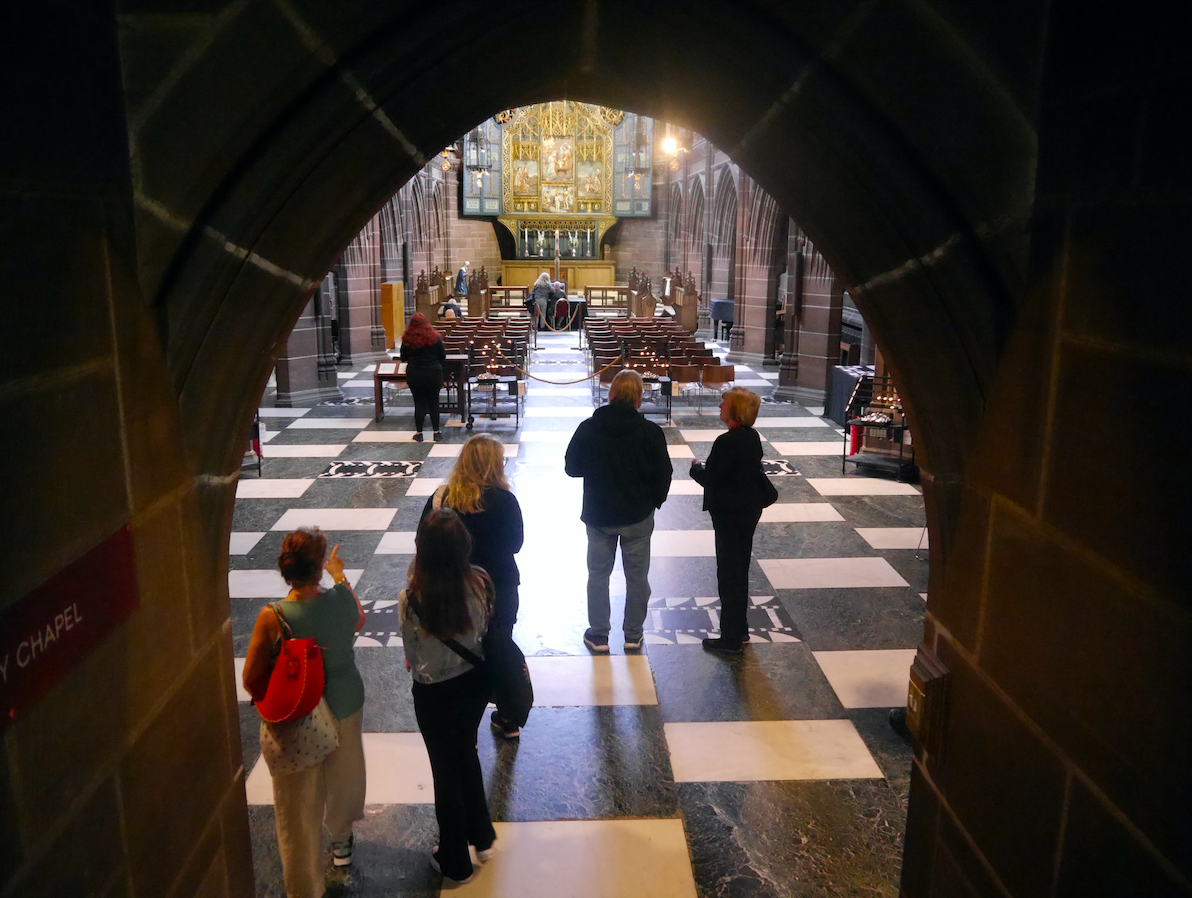
It would be easy to assume Liverpool feels nothing — or more realistically, nothing positive — about the monarchy, and as such, that its residents would be unmoved by her passing. According to a survey of 21,000 people by UnHerd this summer, Liverpool Riverside is the most anti-monarchist constituency in the country. According to an article in The Independent from May this year, this same constituency is “a hotbed of anti-monarchy sentiment”, with the article citing sentiments from locals like “Too much money is going to them [the Royal Family] and Liverpool’s getting nothing, I couldn’t give a s***.”
Demographically, this anti-royalty sentiment makes sense. According to statistics supplied by the city council, almost a quarter (24.1%) of the population in Liverpool identify as Catholic. At the risk of labouring the obvious — many of those Catholics are Irish-Catholic. Given the historic tensions between Ireland and the English monarchy (and the monarchy and Catholicism), mixed with Liverpool’s strong anti-establishment tradition, it feels logical that many Liverpudlians would feel hostile towards the Royal Family.
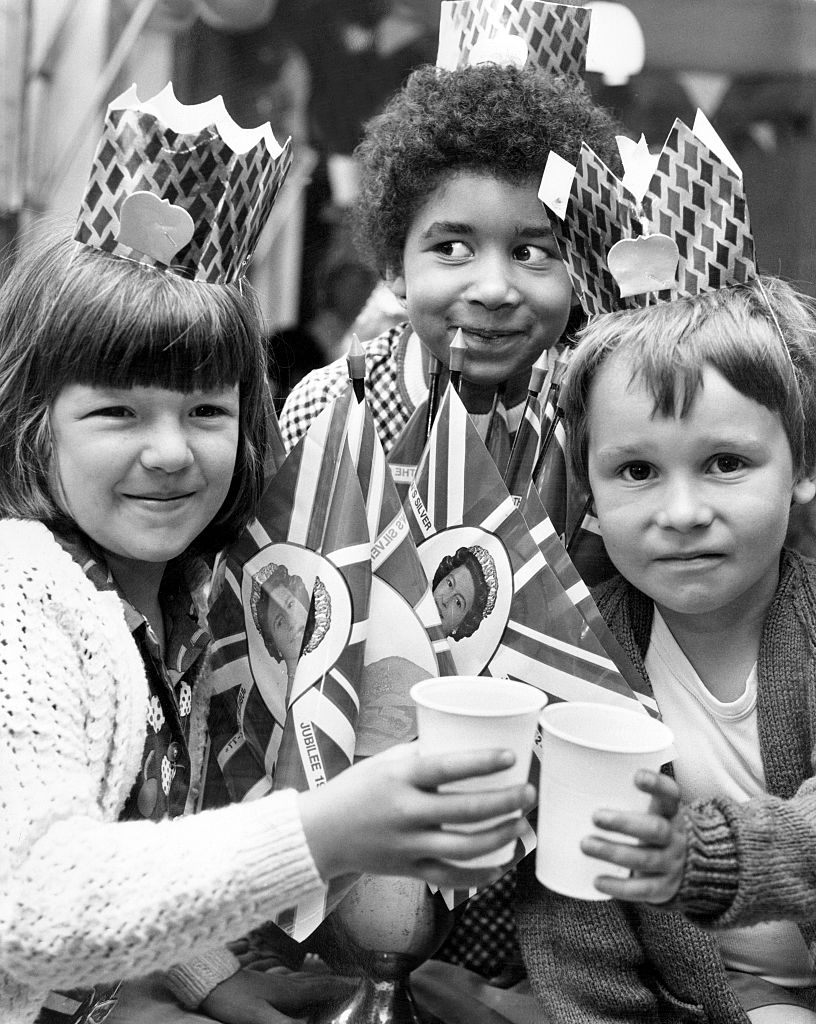
But Dr David Jeffery, a lecturer in politics at the University of Liverpool, argues that “the idea that Liverpool is an anti-royal city isn’t really borne out by the evidence. It’s just less pro-monarchy than other places.” He points out that when you examine the Liverpool Riverside example more closely, 35% disagreed with the statement “I am a strong supporter of the continued reign of the Royal Family”, only marginally ahead of the 32% who agreed. Plus, 34% neither agree nor disagree. Even in the country’s most anti-monarchist constituency, only a third of those surveyed oppose the monarchy.
“There may be anti-monarchists in Liverpool, but it’s not really accurate to determine the rest of the whole of the city based on what is quite shaky data,” he says. Instead, Jeffery, who is also a chair of the city’s Conservatives, brings up two anecdotal examples of the opposite sentiment. For one, at the close of the night at a gay club on Thursday, they played “God Save The Queen” (“Of course gay men like me are likely to like the pageantry of the Royal Family,” he says, “but it could also indicate some affection”). He was on Church Street on Thursday near Primark — a famous black hole for phone signal — when he saw a group of teenage girls leaving the shop. As such, he got to witness them reading the push notification that announced the Queen had died: “They seemed quite stunned, taken aback and sad.”
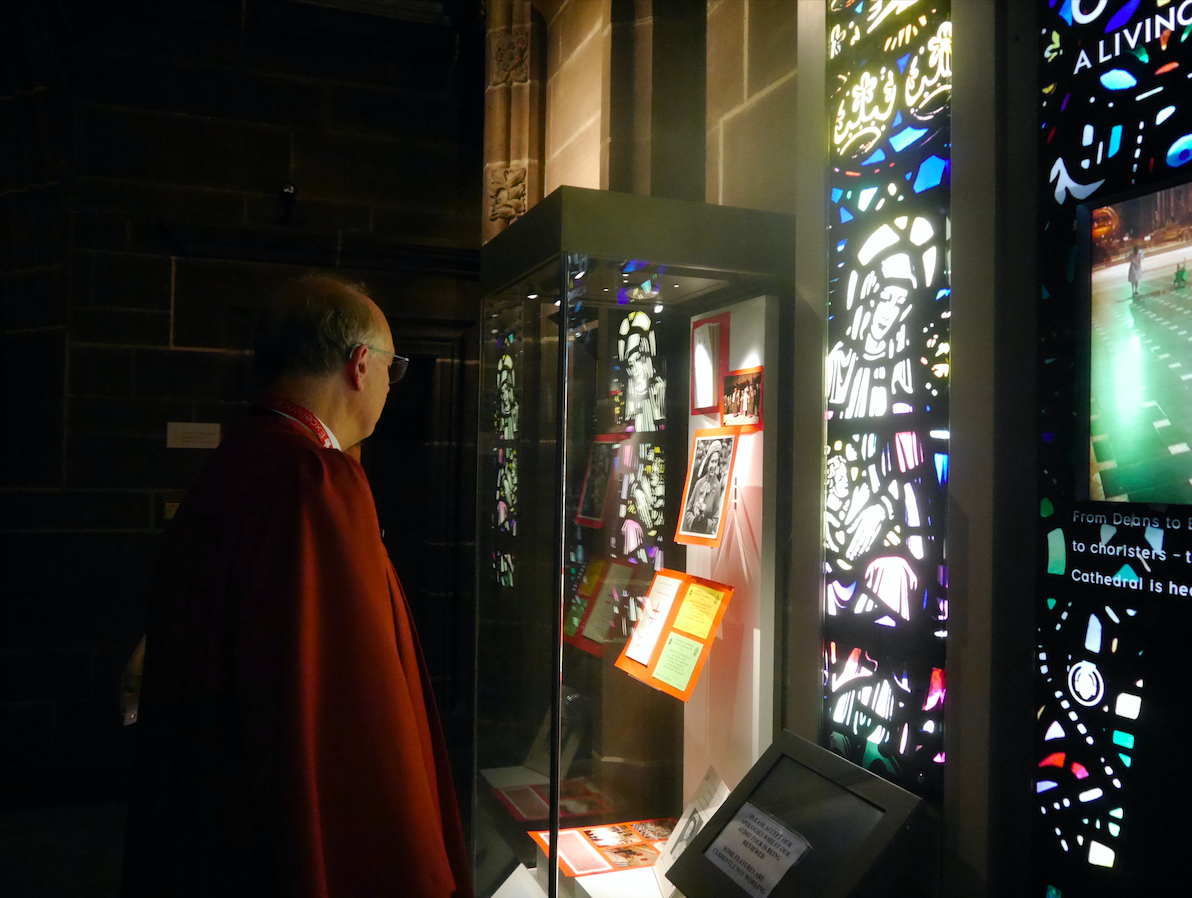
Back in the cathedral, photos and symbols of the Queen are all around. Clive, a kindly cathedral guide, is taking me on a tour of the building. He usually works Wednesdays, but he came in today to show his respect and help assist visitors: it’s an unusually busy day. In the main hall, he shows me the Queen’s signature, which she painted on the dusty red surface of a pillar upon the cathedral’s opening in 1978. A stonemason then embossed the negative space around it, leaving a lasting design: an E&P, intertwined. Towards the head of the cathedral are two glass cabinets encasing photos of the Queen on visits. Now, it feels like a shrine.
“Would you like to ask me for a quote now?” he says. “I’ve been thinking of one while we’ve been walking.”
“Sure,” I say.
“The Queen was a great grandmother, grandmother, mother, sister and daughter,” he says, counting each one off his fingers, “to her family and also the country and the world. And she’s sadly missed. I’m not sure that’s any good.”
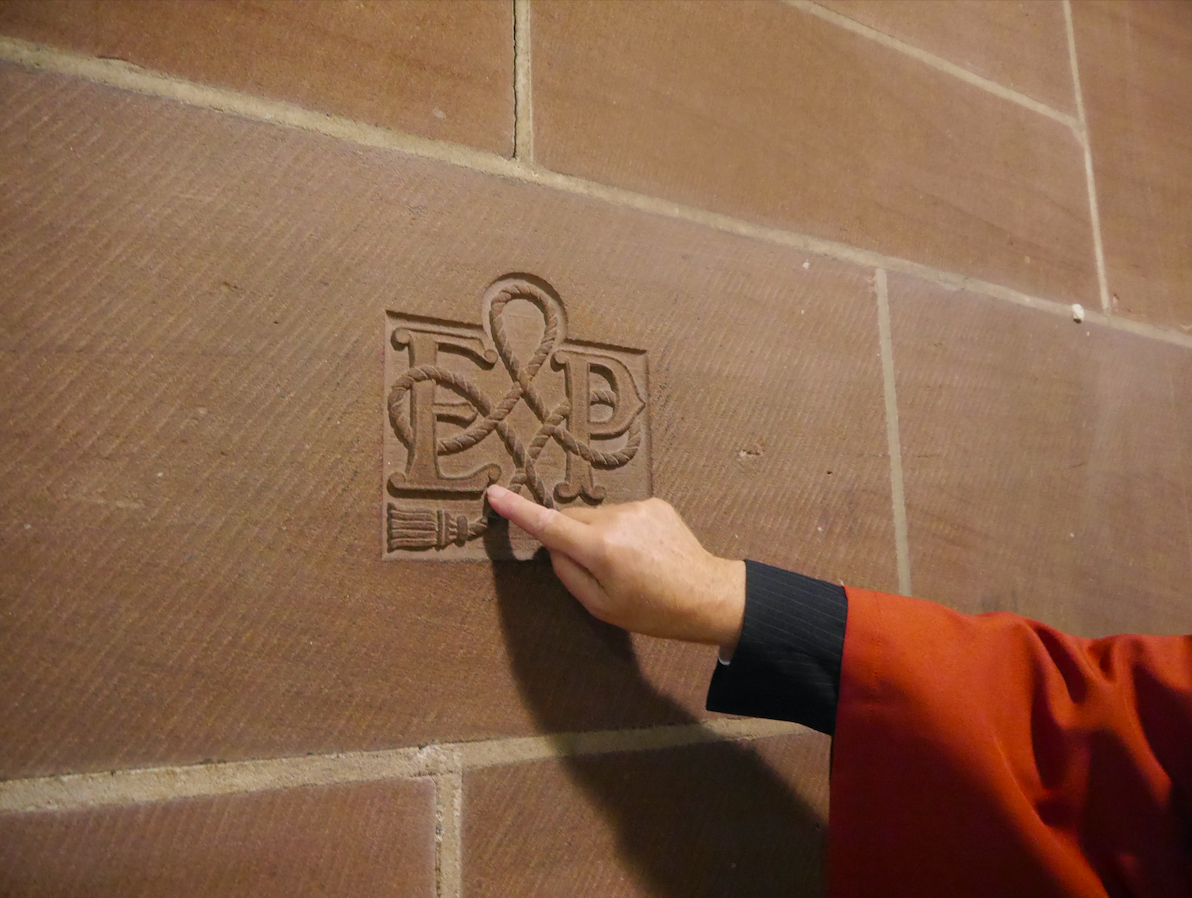
Inside The Lady Chapel, a small, orderly queue forms for people to write a tribute to the Queen. This strength of feeling seems to gesture to something larger than the death of an individual — especially one who many of these people will never have met. Laura agrees. “It brings out any undercurrents people are going through,” she says. “It brings them back to their own losses.” She mentions flash floods, a new prime minister and the cost of living crisis as factors that might be compounding her grief. Changes like this can be uncomfortable — the Queen’s consistent presence acted like an emotional safety mechanism.
Laura met the Queen only once. It was 2003, and she was taking her history pupils on a school trip to the cathedral for the Royal Maundy, a religious service where the British monarch gives money for elderly recipients. She anxiously lined up her pupils in a row, who had made an Easter card to give to the Queen. Laura presented it to the Ladies in Waiting, and then the Queen’s attention turned to her. “She had these sparkling blue eyes,” she remembers. “A genuine big smile formed across her face. She talked to me and it wasn’t forced. It wasn’t fake. It was genuine.”
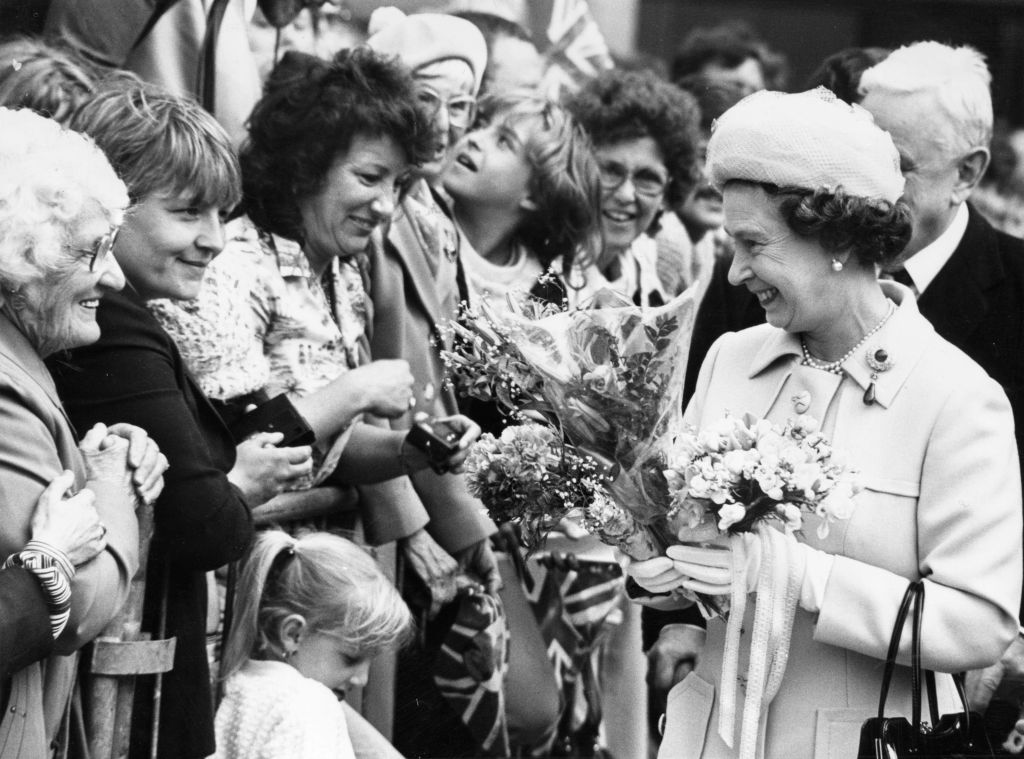
These days, Laura identifies as a royalist, not a monarchist. That semantic distinction is important, because she doesn’t feel loyalty to the institution or even empirically believe in it. But she believes in the Queen — her values, how she carries on through trauma. “It’s about her, her character,” Laura says. “You could just say it’s silly.” This kind of response — a little self conscious and guarded — characterises a lot of the interactions I have with those who are keenly feeling the loss of the Queen.
At the other end of the spectrum sit two women: Diane and Lisa. “Why do we need a Queen?” Diane asks. “We’re not ants or wasps.” Diane’s friend Lisa runs the Cry Freedom radio station, and the pair are in the beer garden behind Gallagher’s Traditional Pub in Birkenhead, ready to celebrate. It’s an old boozer known for its extravagant World War II memorabilia and built-in barber shop. “White Rabbit” by Jefferson Airplane plays in the background and the sun beats down heavily.
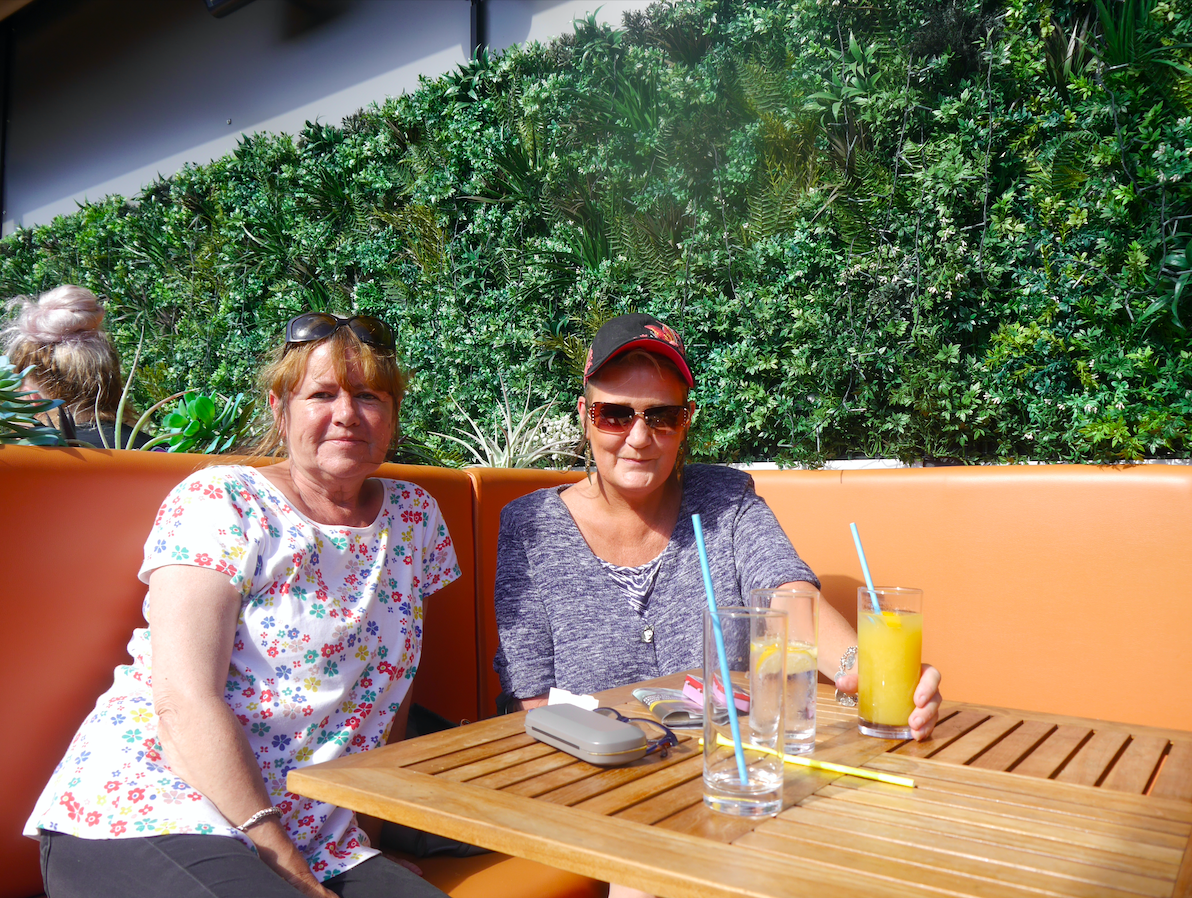
“We think it happened ages ago,” Lisa says. “It wasn’t yesterday.” What about the photo of the Queen shaking hands with Liz Truss on Tuesday? “Photoshop,” Diane says. “And there’s a lot of doubles out there.” Lisa discusses the theories of QAnon, the American conspiracy theory that alleges Donald Trump was waging a war against powerful Satanic paedophiles. Conscious that they’re probably not representative of your average anti-monarchist on Merseyside, I leave them to their drinks.
Inside the same pub, friends Pat and Dave sit drinking pints of lager.
“We never met,” Pat says, when I ask how he felt about the Queen’s passing.
“Ships in the night,” Dave adds.
“Yeah, we must have just missed each other.”
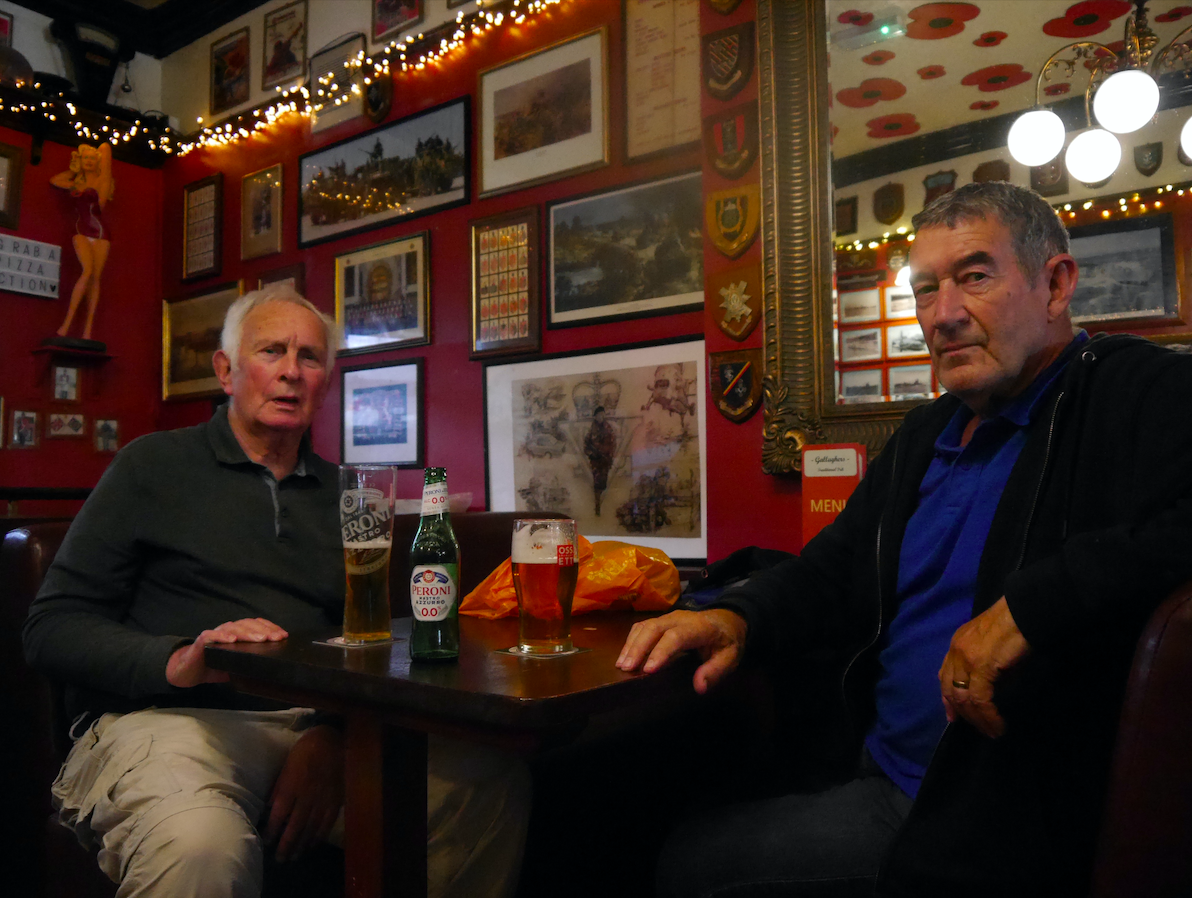
Dave is a strong anti-monarchist — his main point, which is hard to dispute, is that the monarchy is anti-democratic, unaccountable and outdated.
“It just strikes me as ridiculous that by birth somebody is thought to be an elevated being, and they’re going to be in charge of the country,” he says.
“I’m similar to my friend,” Pat says, a little more tempered. “I respect the Queen in a way, because it’s not her fault she was brought up in that family.”
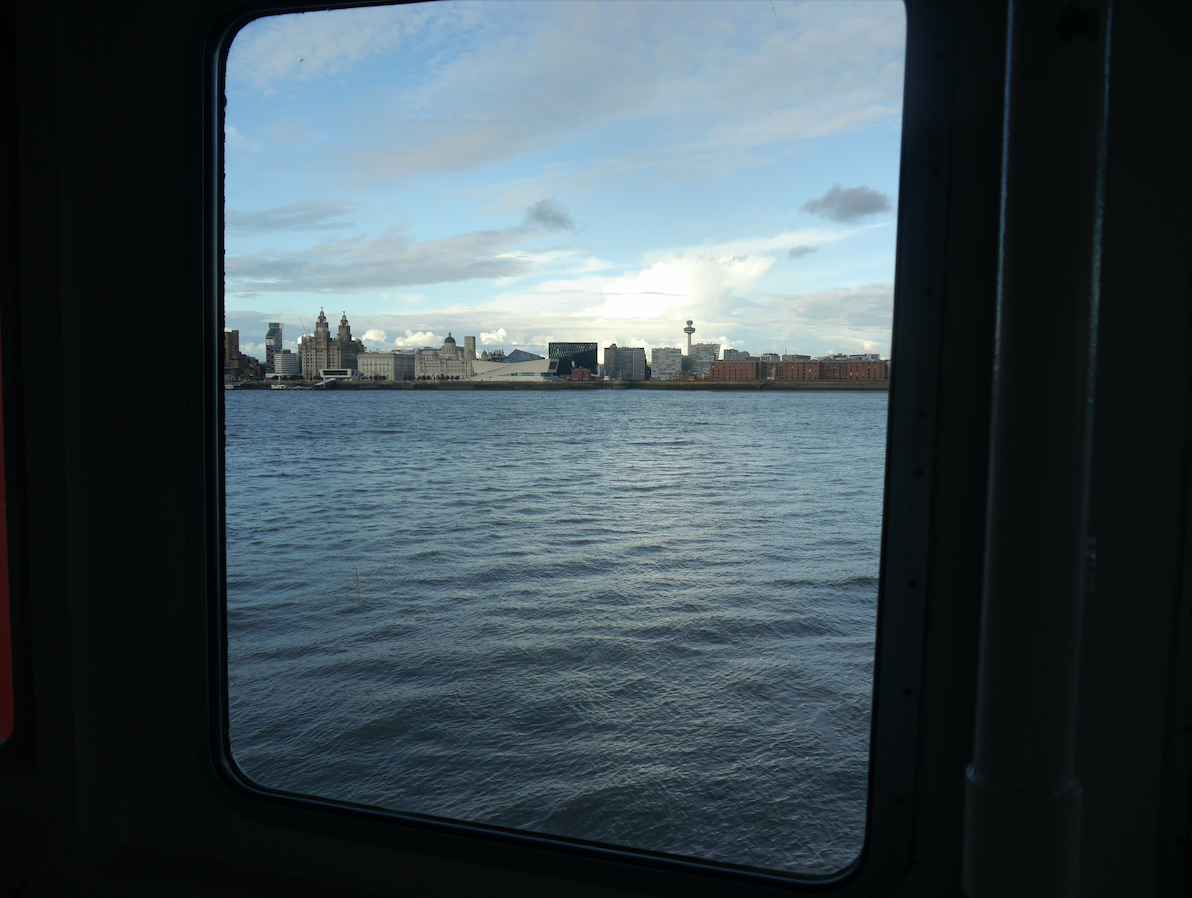
When I take the ferry home, the light is softer and the city has an unusually quiet feel. I get chatting to Marta, a Spanish woman visiting her friend in Liverpool, who came here for the Ajax v Liverpool game but is sadly having to miss it. She feels ambivalent about the Queen’s passing, but like many others, is sensitive to the feeling of uncertainty in the air. “It feels strange,” she says, as we start to approach the other side of the water. “Something else is ending, something else is finishing.”

Comments
Latest
Michael Heseltine 'saved' Liverpool. Didn't he?
Cheers to 2025
Searching for enlightenment in Skelmersdale
I’m calling a truce. It’s time to stop the flouncing
‘There was Emmeline Pankhurst, there was my nana and there was the Queen’
Merseyside remembers Queen Elizabeth II